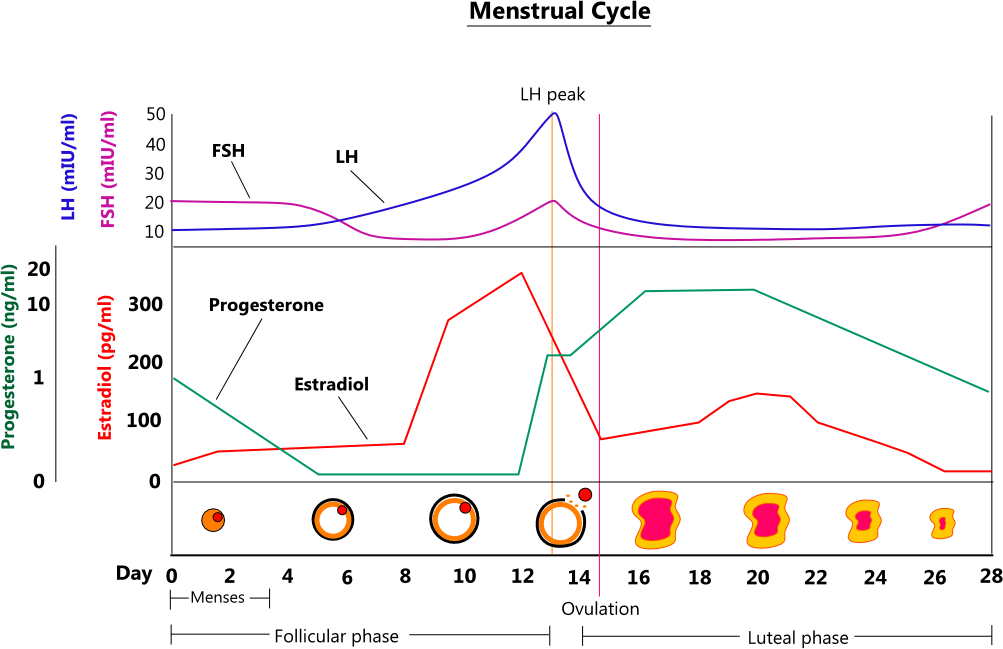Last updated: June 26, 2024
3 mins read
What is follicle-stimulating hormone?
Follicle-stimulating hormone (FSH) is a hormone synthesized mostly by the pituitary gland in the brain. It is involved in sexual development and reproduction for both males and females. In females, FSH stimulates the production of estradiol and regulates the menstrual cycle, peaking just before ovulation. In males, FSH works with testosterone to maintain normal sperm count and function.
Why is FSH important?
Given its significance in regulating the menstrual cycle, FSH is included in SiPhox Health‘s base panel for females but is also included in the male Hormone+ panel due to its importance to reproductive health. Measuring FSH is helpful to both males and females who are interested in their fertility status and are looking to become pregnant.
For females, high FSH may indicate primary ovarian insufficiency (POI), polycystic ovary syndrome (PCOS), perimenopause, ovarian tumor, or Turner syndrome. Low FSH may indicate pituitary gland disorder, hypothalamus disorder, insufficient egg production, or that you are very underweight. For males, high FSH may indicate testicular damage or Klinefelter syndrome, while low FSH may indicate pituitary gland or hypothalamus disorders. For these reasons, if you are concerned with your results, it is important to consult with your physician.
How can I better understand my FSH levels?
FSH tests should be taken on day 3 of your menstrual cycle. When interpreting results for FSH, it is important to consider how dynamic this hormone can be. In menstruating folks, FSH varies considerably between the follicular and luteal phases of the menstrual cycle. Levels increase with age, but a surge occurs during perimenopause (the start of menopause) and remains high post-menopause. In males, FSH is low and is relatively static in comparison.
The following graph by Straight Healthcare shows how variable FSH can be for menstruating females, along with other hormones that are important for the regulation of the menstrual cycle.
To assist in the interpretation of test results, the American Board of Internal Medicine published reference ranges for FSH:
Normally Menstruating Females:
- Follicular phase: 2 – 9 mIU/mL
- Mid-cycle peak: 4 – 22 mIU/mL
- Luteal phase: 2 – 9 mIU/mL
Postmenopausal Females:
- > 30 mIU/mL
Males:
- 1 – 7 mIU/mL
Abnormally high or low levels of FSH could be indicative of a more serious issue, so please consult with your physician if you are concerned with any of your results.
How can I maintain optimal FSH levels?
If you need to maintain or adjust your FSH levels, consider the following strategies:
Dietary Changes: Taking probiotics can help to increase FSH levels.
Lifestyle Changes: Weight loss can help to lower FSH levels, and exercising (especially HIIT) can help raise FSH levels.
Supplementation: If you want to lower FSH levels, supplement with royal jelly, omega-3 fatty acid, vitamin D, or zinc. On the other hand, if you are looking to increase FSH levels naturally, you can try supplementing with oyster polypeptides or melatonin.
Where can I learn more?
- MedlinePlus – FSH Levels Test
- Dr Matt & Dr Mike (Video) – FSH and LH
- Fertility Dietician Melanie McGrice (Video) – How can I improve my FSH levels?
DISCLAIMER: IF YOU ARE CONCERNED WITH ANY OF YOUR RESULTS, PLEASE CONSULT WITH A HEALTHCARE PROVIDER.



